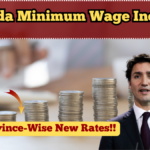The question on every Canadian homeowner and buyer’s mind in 2025 is whether the country’s housing bubble is finally bursting. With years of rapid price increases, growing mortgage debt, and rising interest rates, concerns around a housing market crash in Canada have intensified. But is the fear justified?
While many analysts expected a correction in 2024, the market remained resilient. However, early 2025 updates suggest that Canada’s real estate landscape is now showing signs of strain. This article examines the factors behind current market behavior, expert analyses, and how federal and provincial governments are responding to the situation.
Whether you’re a homeowner, investor, renter, or first-time buyer, this is your comprehensive guide to the current housing market crash Canada discussion.

Where the Canadian Housing Market Stands in 2025
According to recent canada news and CMHC reports, Canada’s housing market has cooled significantly in early 2025, particularly in urban centers like Toronto, Vancouver, and Montreal. Here’s an overview of key indicators:
-
National average home prices have declined by 7.3% compared to this time last year
-
Sales volume has dropped in nearly every major city, with Toronto down 18% year-on-year
-
Mortgage delinquencies have risen for the first time in over a decade
-
Inventory levels are climbing, giving buyers more negotiating power
While this isn’t yet classified as a full market crash, the trend is downward. The overheated growth seen during 2020–2022 is now reversing.
Factors Contributing to the Current Downturn
Experts agree that several economic and policy factors are driving this cooling trend in 2025. Key contributors to the ongoing housing slowdown include:
-
High interest rates: The Bank of Canada has maintained its policy rate above 5%, making mortgages more expensive and limiting borrowing power.
-
Mortgage renewals at higher rates: Many homeowners who locked in low rates during the pandemic are now renewing at significantly higher costs, straining household budgets.
-
Investor pullback: Real estate investors, especially in condos, are exiting the market due to lower returns and increased regulation.
-
New housing supply: Government incentives have resulted in more new builds, especially in Ontario and BC, easing demand pressure.
-
Lower immigration intake: While immigration remains strong, stricter visa rules for international students and temporary workers have reduced short-term housing demand.
All of these contribute to a softening market. The 2025 updates reflect a shift from a seller’s market to a more balanced or buyer-friendly one.
What Experts Say: Is This a Crash or a Correction?
Opinions vary among real estate economists and market analysts. Here’s what they’re saying:
-
RBC Economics: “The Canadian housing market is undergoing a healthy correction—not a crash. Prices are falling, but this was overdue given how inflated they became during the pandemic years.”
-
Desjardins Group: “The risk of a crash remains low unless unemployment spikes dramatically or global recession pressures intensify.”
-
National Bank of Canada: “The market is stabilizing. We expect further price declines of 3–5% through the rest of 2025, especially in high-growth suburbs.”
These assessments suggest that while the term housing market crash Canada is being used widely, what we’re seeing is a controlled rebalancing—not a full collapse.
| Expert | 2025 Outlook | Crash Risk |
|---|---|---|
| RBC Economics | Price correction of 8–10% | Low |
| Desjardins | Gradual slowdown | Moderate |
| National Bank | Regional declines only | Low |
| CMHC | Market under stress, not crisis | Low to Moderate |
Government Response and Measures
To avoid a full-blown market crash, the Canadian federal and provincial governments have introduced several measures:
-
Extended mortgage relief programs: Homeowners struggling with payments due to high renewals can apply for term extensions or interest-only periods.
-
Affordable housing investments: Billions have been allocated to build low-cost housing across urban and rural areas.
-
Foreign buyer restrictions: The ban on foreign residential property purchases continues in 2025 to prevent speculation.
-
Down payment assistance for first-time buyers: A new national program offers up to $25,000 in support for low-to-middle-income applicants.
These interventions aim to stabilize demand, reduce speculation, and offer a safety net for vulnerable borrowers. The canada news surrounding housing is now focused on affordability and sustainability.
What This Means for Buyers, Sellers, and Renters
Depending on your position in the market, the implications of a potential housing market crash or correction vary:
-
Buyers: This may be a good time to enter the market. Prices are down, bidding wars are rare, and more inventory is available.
-
Sellers: It’s important to price realistically and be prepared for longer listing periods. Holding onto property might be a better strategy if possible.
-
Renters: With fewer investors buying condos, rental supply may tighten in some cities. However, rent control and new construction are helping in others.
-
Investors: Caution is advised. Return on investment is declining in high-priced areas, while some secondary markets are showing better resilience.
Understanding regional trends is key, as cities like Calgary and Halifax remain more stable than Toronto or Vancouver.
FAQs
Is Canada experiencing a housing market crash in 2025?
Not exactly. It’s more of a market correction. Prices are falling in major cities, but not collapsing. Experts consider this a rebalancing.
Why are home prices falling in Canada this year?
High interest rates, investor exits, increased housing supply, and affordability concerns have led to a decline in prices.
Will the government step in to stop a housing crash?
Yes. The government has launched support programs for borrowers and invested heavily in affordable housing to avoid a crash.
Is now a good time to buy a house in Canada?
It could be. Prices are lower, and the market favors buyers in many regions. But affordability still depends on your financial readiness.
Are interest rates expected to drop soon?
Not yet. The Bank of Canada is holding rates steady for now. Analysts expect potential cuts only if inflation declines significantly.
Click here to know more.
Aanchal is a passionate writer with a keen interest in storytelling, content creation, and creative expression. She enjoys exploring diverse topics and crafting engaging narratives that captivate readers.




